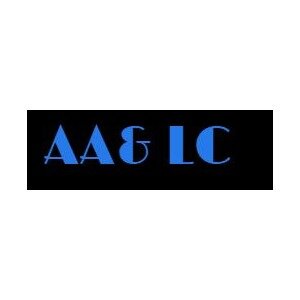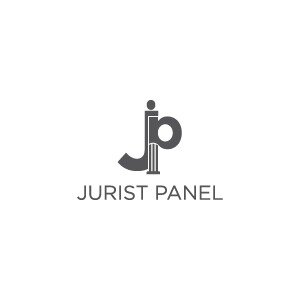Best Debt Capital Markets Lawyers in Islamabad
Share your needs with us, get contacted by law firms.
Free. Takes 2 min.
List of the best lawyers in Islamabad, Pakistan
About Debt Capital Markets Law in Islamabad, Pakistan
Debt Capital Markets (DCM) in Islamabad refer to the platforms and mechanisms that enable corporations, financial institutions, and the government to raise funds through the issuance of debt instruments such as bonds, Sukuk (Islamic bonds), term finance certificates, and other debt securities. DCM plays a crucial role in Pakistan’s economic landscape, allowing entities to access long-term financing beyond traditional bank lending. Islamabad, being the federal capital, houses key regulatory bodies and serves as a focal point for the country's financial and legal governance in this sector.
Why You May Need a Lawyer
Engaging in Debt Capital Markets transactions often involves complex legal and regulatory requirements. Common situations where legal advice may be required include:
- Structuring and issuing bonds, Sukuk, or other debt securities
- Compliance with regulatory filings and disclosure requirements
- Adhering to rules of the Securities and Exchange Commission of Pakistan (SECP)
- Negotiating agreements with underwriters, trustees, and investors
- Ensuring Shariah compliance for Islamic finance instruments
- Managing defaults or disputes related to debt instruments
- Cross-border issuance and compliance with foreign investment regulations
- Dealing with tax implications of debt instruments
- Advising on restructuring or refinancing of corporate debt
Legal representation ensures you understand your rights and obligations while minimizing the risk of non-compliance, reputational damage, or financial loss.
Local Laws Overview
Debt Capital Markets in Islamabad operate under a combination of federal statutes, regulatory guidelines, and market practices. The primary regulator is the Securities and Exchange Commission of Pakistan (SECP), which enforces several key regulations:
- Companies Act, 2017: Governs the formation and management of companies, including their borrowing powers and issuance of debt securities.
- Securities Act, 2015: Sets the framework for public offerings, private placements, and trading of securities, including debt instruments.
- Public Offering Regulations: Detail requirements for issuance and listing of debt and equity securities.
- Sukuk Regulations: Establish guidelines for structuring Islamic debt instruments in compliance with Shariah principles.
- Tax laws: Impact the treatment of interest, profit, and capital gains from debt securities.
- Foreign Exchange Regulations: Apply to cross-border investment and repatriation of proceeds.
Additionally, market players must adhere to the rules of the Pakistan Stock Exchange (PSX) and any sector-specific regulations. Seeking legal counsel is critical to ensure that all contractual, compliance, and disclosure obligations are met.
Frequently Asked Questions
What is the Debt Capital Market?
The Debt Capital Market is a segment of the financial market where entities raise funds by issuing debt instruments such as bonds or Sukuk. Investors lend money in exchange for fixed or variable returns.
Who regulates Debt Capital Markets in Islamabad, Pakistan?
The Securities and Exchange Commission of Pakistan (SECP) is the primary regulator. Transactions may also involve the State Bank of Pakistan (SBP) for monetary and foreign exchange aspects.
What types of debt instruments can be issued in Pakistan?
Common instruments include corporate bonds, government bonds, Term Finance Certificates (TFCs), commercial papers, and Sukuk (Islamic bonds).
What legal requirements must be met before issuing debt securities?
Issuers must comply with the Companies Act 2017, the Securities Act 2015, applicable SECP regulations, listing requirements (if listed on PSX), and, for Sukuk, Shariah compliance parameters.
Do debt securities in Pakistan need to be listed on a stock exchange?
While listing is not always mandatory, listed securities offer more transparency and liquidity. Unlisted private placements are also common, especially for institutional investors.
What role does a trustee play in debt securities?
A trustee represents the interests of the investors by ensuring compliance with the terms of the debt instrument and protecting investor rights during events like default or restructuring.
Are there restrictions on foreign investors purchasing debt securities in Pakistan?
Foreign investors can generally participate, subject to guidelines from the SECP and the State Bank of Pakistan, particularly regarding repatriation of dividends or capital.
What is Sukuk and how is it different from conventional bonds?
Sukuk are Islamic bonds structured to comply with Shariah law, meaning they do not pay interest but offer profit-sharing or other lawful returns, unlike conventional bonds which pay fixed or variable interest.
What happens if the issuer defaults on their debt obligations?
If an issuer defaults, investors may have legal recourse as per the instrument's terms. Trustees typically initiate recovery action, and legal proceedings may be commenced to enforce investor rights.
Can debt instruments be restructured or refinanced?
Yes, with creditor agreement and regulatory compliance. Legal advice is critical to ensure proper documentation and adherence to regulatory requirements.
Additional Resources
If you require more information or need to verify legal requirements, the following resources and organizations can be helpful:
- Securities and Exchange Commission of Pakistan (SECP) - for regulatory guidance and public notices
- Pakistan Stock Exchange (PSX) - for listing requirements and market information
- State Bank of Pakistan (SBP) - for policies related to foreign exchange and monetary regulation
- Institute of Chartered Accountants of Pakistan (ICAP) - for accounting and financial reporting standards
- Islamic Financial Services Board (IFSB) - for Islamic finance standards, notably relevant to Sukuk
- Legal and consultancy firms specializing in DCM and financial services law in Islamabad
Next Steps
If you are considering participating in or are currently engaged in the Debt Capital Markets in Islamabad, Pakistan, it is advisable to:
- Identify the specific type of debt instrument and market mechanism relevant to your needs
- Consult with a qualified lawyer or law firm specializing in debt capital markets and financial regulation
- Prepare the necessary documentation and ensure compliance with all applicable SECP, SBP, and PSX regulations
- Engage professional advisors early in the process to review structuring, disclosures, and investors’ agreements
- Stay updated with regulatory changes and market trends by connecting with relevant trade bodies and legal experts
Accessing legal support at every stage helps ensure that your transactions are efficient, compliant, and protected against potential disputes or regulatory pitfalls.
Lawzana helps you find the best lawyers and law firms in Islamabad through a curated and pre-screened list of qualified legal professionals. Our platform offers rankings and detailed profiles of attorneys and law firms, allowing you to compare based on practice areas, including Debt Capital Markets, experience, and client feedback.
Each profile includes a description of the firm's areas of practice, client reviews, team members and partners, year of establishment, spoken languages, office locations, contact information, social media presence, and any published articles or resources. Most firms on our platform speak English and are experienced in both local and international legal matters.
Get a quote from top-rated law firms in Islamabad, Pakistan — quickly, securely, and without unnecessary hassle.
Disclaimer:
The information provided on this page is for general informational purposes only and does not constitute legal advice. While we strive to ensure the accuracy and relevance of the content, legal information may change over time, and interpretations of the law can vary. You should always consult with a qualified legal professional for advice specific to your situation.
We disclaim all liability for actions taken or not taken based on the content of this page. If you believe any information is incorrect or outdated, please contact us, and we will review and update it where appropriate.

















